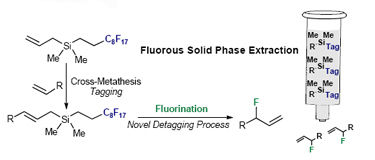UK chemists warn of funding crisis
Sharp drop in grant numbers hits young scientists and blue skies research
Senior researchers have warned that a sharp drop in the number of research grants awarded this year risks damaging UK chemistry. Young chemists applying for first-time grants have suffered most under widespread changes to the funding strategy of the Engineering and Physical Sciences Research Council (EPSRC).
In the half-year since April 2008, EPSRC has funded 4 and rejected 17 ‘first grant’ chemistry applications: a success rate of under 20 per cent. In the last financial year, EPSRC funded 18 out of 25, or 72 per cent, of first grant applications. Meanwhile, the proportion of chemistry grants funded through ‘responsive mode’ applications – where scientists can submit proposals on any subject for any amount – has dropped from around 25 per cent to below 10 per cent.
The sharp fall in first-time grants could undermine young researchers at a crucial time in their career, leading chemists say. ‘This is a major blow to the community – new academics are our future,’ says Robin Perutz, an inorganic chemist at York University.
Chemists are also concerned that EPSRC has set aside around 20 per cent of its funds for priority areas, such as energy and next generation healthcare.
‘Responsive mode is the heart of science,’ says Donna Blackmond at Imperial College London. ‘Diverting money to these “important challenges” threatens research based on the individual scientists’ ideas, which is how big things get discovered.’
Jeremy Sanders, former head of the University of Cambridge’s chemistry department, agrees. ‘Top-down initiatives might be a good way of translating fundamental science into applied technology, but I remain to be convinced that they’re a good way of discovering fundamental new science.’
‘The sudden shift in funding has been a short, sharp shock for academics, and there’s a large degree of mistrust about where this is coming from – with the research councils viewed as a spokesperson for the Treasury,’ says David Fox, senior director in discovery chemistry at Pfizer and currently industrial fellow at the RSC. ‘I’d like to see if industry could act as a lightning rod for academics and EPSRC to come together to hammer some of this out, because at the moment it seems to be a bit of a stand-off.’
Most read news
Other news from the department business & finance

Get the analytics and lab tech industry in your inbox
By submitting this form you agree that LUMITOS AG will send you the newsletter(s) selected above by email. Your data will not be passed on to third parties. Your data will be stored and processed in accordance with our data protection regulations. LUMITOS may contact you by email for the purpose of advertising or market and opinion surveys. You can revoke your consent at any time without giving reasons to LUMITOS AG, Ernst-Augustin-Str. 2, 12489 Berlin, Germany or by e-mail at revoke@lumitos.com with effect for the future. In addition, each email contains a link to unsubscribe from the corresponding newsletter.

























































